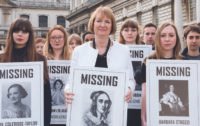Commitment to using female composers in half of Laban’s classical programmes
BY NEWS REPORTER
calum@slpmedia.co.uk
A South London music and dance school has committed to using female composers for half of its performances from the start of next season’s programme.
The Trinity Laban Conservatoire of Music and Dance in King Charles Court, Greenwich launched the Venus Blazing project on Thursday – International Women’s Day – which will see them promote the hidden music of women composers.
The performances, held at the conservatoire’s Greenwich campus and other London venues, includes more than 60 concerts and operas by Trinity Laban’s 12 student performing groups.
Harriet Harman, MP for Camberwell and Peckham and Trinity Laban chairwoman, said: “The Laban is committed to diversity in all elements and it has a mission to constantly challenge the status quo.
“Venus Blazing will encourage and inspire students – many of whom will go on to shape the future of the performing arts – to engage with the historic issue of gender imbalance in music by women, and ensure that it does not continue into the next generation.
“I welcome this bold initiative to raise awareness of the disparity that has long existed in music and shine a light on music that has so frequently been overlooked.
“I am also greatly looking forward to hearing some of the musical treasures by women I might not otherwise have had the chance to hear in performance.”
Venus Blazing will include a new production of Thea Musgrave’s opera A Christmas Carol in December, symphonies by Louise Farrenc and Grace Williams performed by the Trinity Laban Symphony Orchestra and an exploration of the music of Trinity Laban alumna Avril Coleridge-Taylor.
Dr Sophie Fuller, leader of the Laban’s masters programme, said: “It is our duty to celebrate women’s music, not just for one year, but to provide the structures, support and encouragement to ensure that this is a lasting legacy for all future musicians and music lovers.
“It is widely recognised that music created by women – whatever the genre – is heard much less often than music created by men.
“In past centuries, it was difficult for women to find a meaningful musical education or get equal access to performance opportunities, but there have always been those who leapt over any obstacles placed in their way.”
For more information, go to www.trinitylaban.ac.uk/venusblazing
